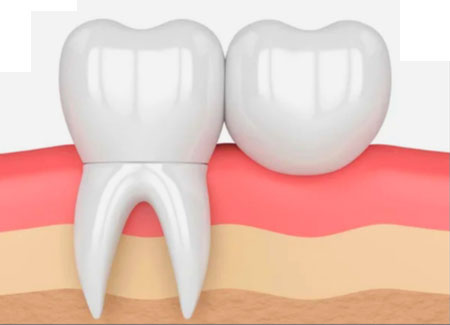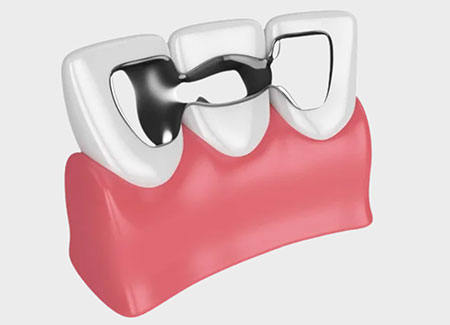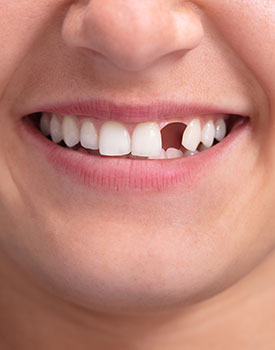Dental Bridge
Dental Bridge
in Lara
What is a Dental Bridge?
A dental bridge is most commonly used to replace a single tooth, or multiple missing teeth. A dental bridge is a combination of several crowns that are attached to the adjacent teeth.
3 TYPES OF
Dental Bridges
After a thorough consult and examination, your dentist will advise you as to the best option to replace your missing teeth.

Cantilever Bridge
A Cantilever bridge is used in a situation where one tooth is used to support a missing tooth. This sort of arrangement is ideal in non-load bearing areas and when we want to limit the preparation of surrounding teeth.

Maryland Bridge
A Maryland bridge is considered the most conservative way to replace a missing tooth. In this method a single or double wing is bonded to the adjacent teeth to replace the missing tooth. It is often used in the front of the mouth however does not provide the same strength as a traditional bridge.

Traditional Bridge
A traditional bridge is used when both teeth on either side of a missing tooth are prepared so a bridge can be bonded into place. This is the most common and strongest form of dental bridge.


Why Should We Replace Missing Teeth?
After losing a tooth, whether it be due to infection or trauma, we highly recommend that it be replaced as soon as possible. When a tooth is lost, the natural balance of the mouth is compromised, and this can lead to undue strain and stress on the remaining teeth and bone.
When a tooth is lost you may notice:
- Neighboring teeth tilt and tip
- Opposing teeth over-erupt
- Bone loss in the surrounding area
- Decay and food traps in the area where the tooth has been lost
- Excess strain on the remaining teeth
To prevent these negative consequences, and to enhance your chewing and aesthetics we recommended replacing all missing teeth.
Alternatives to a dental bridge?
If you feel like a dental bridge is not right for you, or if you would prefer not to damage adjacent teeth, there are several alternatives to replace missing teeth.
The most common alternatives to dental bridges are :
- 1. Dental Implant
- 2. Denture
How long do dental bridges last?
Dental Bridges are a great long-term solution for missing teeth. If taken care of dental bridges can often last 10-15 years or more. Since bridges are cemented onto your tooth, it is very rare that they come off or break. To get the best result, good at-home oral hygiene is required which involves daily brushing and flossing. 6 monthly dental check-ups are also ideal to ensure the health of the dental bridge and the underlying teeth are optimum.
How much does a bridge cost?
The position in the mouth
The material used to construct the bridge
The type of bridge used
The number of teeth being replaced
On average the price of a dental bridge ranges from $2000 to $3500
Pros and Cons of Dental Bridges:
PROS
- Permanently fixed into place
- Very strong and very rarely come off or break
- Able to match both aesthetics, colour and function.
CONS
- Requires diligent cleaning and maintenance
- Adjacent teeth often have to be prepared to make space for a crown
Frequently Asked Questions
The lifespan of a bridge is like that of a crown. 5-15 years. To get the most out of a dental bridge, make sure to visit us for regular dental check-ups. Also be sure to keep consistent oral hygiene habits at home.
The price of a bridge varies from person to person depending on a variety of factors such as the number of missing teeth, the material of the bridge, the position in the mouth and the difficulty of the procedure. In most cases, the price of a bridge ranges from $2000 to $3500. During your consultation appointment we will be able to give you a much more accurate quote based of your specific needs.
Depending on your level of cover, a certain portion of the total cost of the dental bridge will be covered by your insurance. This can range anywhere from 20% to 60%.
